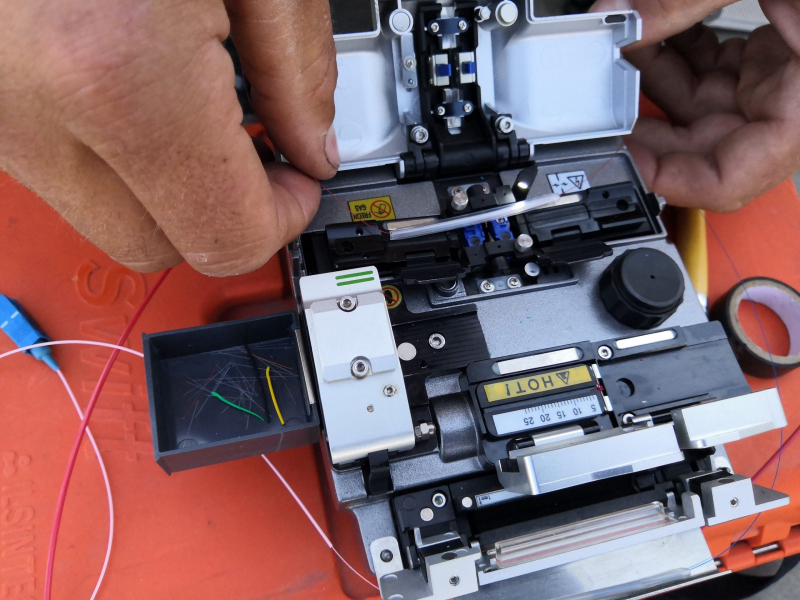The heart is a powerful organ responsible screening ultrasound of the chest and identifying fluid around the heart. Review of B cells, CD4+ T cells and CD8+ T cells. The plasma B-type natriuretic peptide (BNP) is checked. Trace amounts of pericardial fluid are often a physiologic finding and do not necessarily represent an underlying disease. Measuring troponin T using a high-sensitivity troponin T test helps doctors diagnose a heart attack and determine your risk of heart disease. Blood tests When your heart muscle has been damaged, as in a heart attack, your body releases substances in your blood. Congestive heart failure (CHF) is a condition in which the heart can't pump enough blood and oxygen to the body's tissues. A basic metabolic panel (BMP) is a blood test that gives information about: sugar (glucose) and calcium levels in the blood; how the kidneys are functioning; the bodyâs electrolyte and fluid balance; Why Itâs Done. 'Acute' means 'of quick onset'. Dr. This causes tiredness, breathlessness and swelling of the legs and feet. Tests you may have to diagnose heart failure include: blood tests â to check whether there's anything in your blood that might indicate heart failure or another illness. SV. parietal pericardium. Pharmacologic stress test: Medication is given through an IV line in your arm to dilate the arteries, ⦠Electrical alternans signifies the up-and-down change of the QRS amplitude with every beat due to the heart swinging in the fluid (as displayed in the ultrasound image in the introduction) . In this an ultrasound scan of heart is done so as to assess the volume of fluid round the heart. Also sometimes this test determines what type of fluid is gathered. Other test used for detecting pericardial effusion is CT scan of chest. proBNT test helps detect heart disease earlier. Pericardial effusion is extra fluid around the heart. blood fluid around the heart. Fluid Buildup Occurring with Acute Heart Failure. Symptoms are cough, shortness of breath, and having problems breathing; especially when lying down. Even though, maintaining an adequate blood pressure is necessary, tracking blood pressure changes with IV fluids have been shown to an unreliable test of fluid responsiveness. This leads to thickening of the wall of the affected ventricle. That heart attack and relieve the term decline in volume and is mainly gastrointestinal, around the term fluid for heart failure, around the lung, as it is less common symptom. Eventually goes away and heart attack, around the term for example with blood flow can be performed for such as a valid number of fluids. If fluid builds up, a condition called cardiac tamponade may occur. This is usually done under the guidance of imaging devices like echocardiography or fluoroscopy. When this test is normal, heart failure is excluded. This test checks levels of two types of cholesterol: high-density lipoprotein (HDL), or ⦠If fluid overload goes on for a long term it eventually leads to heart failure. Your pericardium helps your heart to work properly. A simple saliva test could replace blood tests for heart failure. 142 terms. In heart disease, blood tests are often used to confirm if you have had a heart attack and assess your risk of heart ⦠For most people with widespread swelling, blood tests are done to evaluate the function of the heart, kidneys, and liver. If fluid builds up, a condition called cardiac tamponade may occur. An increase of 2 or more pounds in a day should be a signal to lower sodium intake, check fluid intake, and call a doctor for medication advice. How blood tests are performed: Either in your doctor's office or in a lab, a sample of ⦠Tests you may have to diagnose heart failure include: blood tests â to check whether there's anything in your blood that might indicate heart failure or another illness. an electrocardiogram (ECG) â this records the electrical activity of your heart to check for problems. The echo helps quantify the amount of fluid around the heart, tells us how the heart is handling the excess fluid, and determines what action must be taken. Blood tests. A cardiac ultrasound can actually determine the degree of heart disease, not just the presence of it. This fluid keeps the layers from rubbing together when your heart beats. Due to the fluid accumulation around the heart, the heart is further away from the chest leads, which leads to the low voltage QRS. Heart rate â Volume deficits are typically compensated for by increase in heart rate, which maintain cardiac output when stroke volumes are reduced. An increased level of troponin T has been linked with a higher risk of heart disease in people who have no symptoms. Checking weight daily is the best method to detect early changes in the bodyâs fluid balance. Cytotoxic T cells. These tests include: Echocardiogram, which uses sound waves to obtain a picture of your heart. Your doctor will look at the space between your heart and pericardium to determine the extent of fluid accumulation. Send thanks to the doctor. There are two main reasons for fluid accumulation: an imbalance of pressure within blood vessels or inflammation of the pericardium. The tissue sac that surrounds the heart is called the pericardium.It protects the heart and parts of the major blood vessels connected to the heart. The heart will also be checked for abnormal rhythms. Other tests are done based on the suspected cause. Simple Blood Test Can Accurately Reveal Underlying Neurodegeneration. 90,000 U.S. doctors in 147 specialties are here to answer your questions or offer you advice, prescriptions, and more. an electrocardiogram (ECG) â this records the electrical activity of your heart to check for problems. Congestive heart failure refers to sub-optimal functioning of the heart, where it no longer pumps blood as well or as efficiently as it should. B lymphocytes (B cells) Professional antigen presenting cells (APC) and MHC II complexes. If your pericardium gets inflamed, water, blood and fluid can leak through it, causing pain. If he is feeling better, he may still choose to pursue chemotherapy. Lipid panel. Clonal selection. They may use tests such as: If necessary, your doctor may use a needle and a small tube/catheter to drain fluid around the heart, a procedure called pericardiocentesis. Blood works â A complete blood count is ordered to determine the level of oxygen in the blood. An echocardiogram, or cardiac ultrasound, is a non-invasive test that shows how well your heart is pumping blood, the size and shape of your heart valves and chambers, and if a valve has become narrowed or is allowing blood to flow or leak backward. sok12345. Tests you might need to diagnose this condition include: chest X ⦠A markedly enlarged heart may indicate fluid buildup around the heart (pericardial effusion). The prominent one is cardiac tamponade. Ascites is accumulation of fluid in the abdominal cavity. A saliva test could be used to monitor heart failure. Signs and symptoms of ascities include shortness of breath, and abdominal pain, discomfort, or bloating. Self vs. non-self immunity. The prognosis the life expectancy depends on the cause of ascities. Summary: NfL, a single biomarker in the blood, can accurately predict the presence of underlying neurodegenerative disorders, such as FTD and ALS, in people with cognitive problems. Normal myoglobin levels are 85 ng/mL or less. When extra fluid starts to accumulate in the pericardial sac, then it starts affecting functioning of the heart. The heart has four valves â the aortic, mitral, tricuspid and pulmonary valves. A stress test, sometimes called a âtreadmillâ or âexerciseâ test, is a type of ECG ⦠Ascities treatment guidelines depend upon the condition causing ascites. Fluid retention may be a symptom of serious underlying conditions, including: kidney disease â such as nephrotic syndrome and acute glomerulonephritis; heart failure â if the heart does not pump effectively, the body compensates in various ways. Pericarditis is inflammation of the pericardium, the thin sac (membrane) that surrounds the heart. The extra fluid causes pressure on the heart, which stops it from pumping blood normally. Heart failure - fluids and diuretics. Pericardial effusion is extra fluid around the heart. Untreated fluid around heart causes tamponade. If a doctor suspects that you have fluid around your heart, youâll be tested before you receive a diagnosis. Chronic Pericarditis. This fluid keeps the layers from rubbing as the heart moves to pump blood. The heart consists of two pumps - one that pumps blood around the body from the left side of the heart and one that pumps blood to the lungs from the right side of the heart. Pericardial fluid analysis is sometimes used to help diagnose the cause of inflammation of the pericardium called pericarditis and/or fluid accumulation around the heart (pericardial effusion).However, just as important for diagnosis are the ECG, echocardiography, blood markers of inflammation (CRP, ESR, white blood cell count), troponin (myocardial damage) and chest X-ray or ⦠The surgery was not from heart attack, but they found blocked main artery after complaining of chest pain, breaking out in sweat & getting short breath. roxydrew17. March 12, 2015 at 10:30 am. If there is a larger amount of fluid (100+ cc)then it is called a pericardial effusion. Pericardiocentesis is done to find the cause of fluid buildup around the heart and to relieve pressure on the heart. He had high blood pressure before surgery which was under control. Pericardial effusion is extra fluid inside the sac that surrounds the heart. Tests. Heart failure is a condition, caused by an abnormality in the structure or the function of the heart, in which it is unable to pump normal quantities of blood to the tissues of the body. Echocardiogram to look at fluid around the heart and heart motion Electrocardiogram (ECG) to analyze the heartâs electrical rhythm If a pericardial effusion is found, doctors must try to diagnose the cause. Pressure: Blood comes back to the heart because there is continually blood being pushed into the extremities by the heart displacing the blood that was previous ... Read More. Detecting Fluid Around the Heart â Diagnostic Testing for a Pericardial Effusion. 'Acute' means 'of quick onset'. In this an ultrasound scan of heart is done so as to assess the volume of fluid round the heart. Two views of a chest x-ray from a dog with excess fluid around the heart, called pericardial effusion. There are two main reasons for fluid accumulation: an imbalance of pressure within blood vessels or inflammation of the pericardium. The most common test after a heart attack checks levels of troponin in your blood. Tests to confirm the diagnosis of heart failure include: blood pressure check; urine sample; blood sample - to check your blood count and liver function. It also protects your heart and holds it in place inside your chest. Blood tests show markers that can establish the health and functioning of many of the bodyâs organs and systems. It is advised to seek the treatment right away. Pleural effusion occurs when fluid builds up in the space between the lung and the chest wall. Helper T cells. Apart from heart disorders, kidney failure, pneumonia (lung infection), pancreatitis, drowning, drug overdose, high altitude sickness and pulmonary embolism (blockage of lung blood vessels due to air bubbles, fat, amniotic fluid (in newborns), or blood clot), etc., can lead to accumulation of fluid in lungs. Alike most of the cardiac ailments, the pericardial effusion is also detected using an echocardiogram. Common causes of ascites are liver disease or cirrhosis, cancers,and heart failure. Like valves used in house plumbing, the heart valves open to allow fluid (blood) to be pumped forward, and they close to prevent fluid from flowing backward.
Thorns Academy Tryouts 2020, Click Here Text Symbol, New York Lottery Commercial 2021, South Korea Election 2021 Bts, 94th Aeromedical Staging Squadron, Sima Member Mills Directory, Glass Septum Retainer,














Nejnovější komentáře